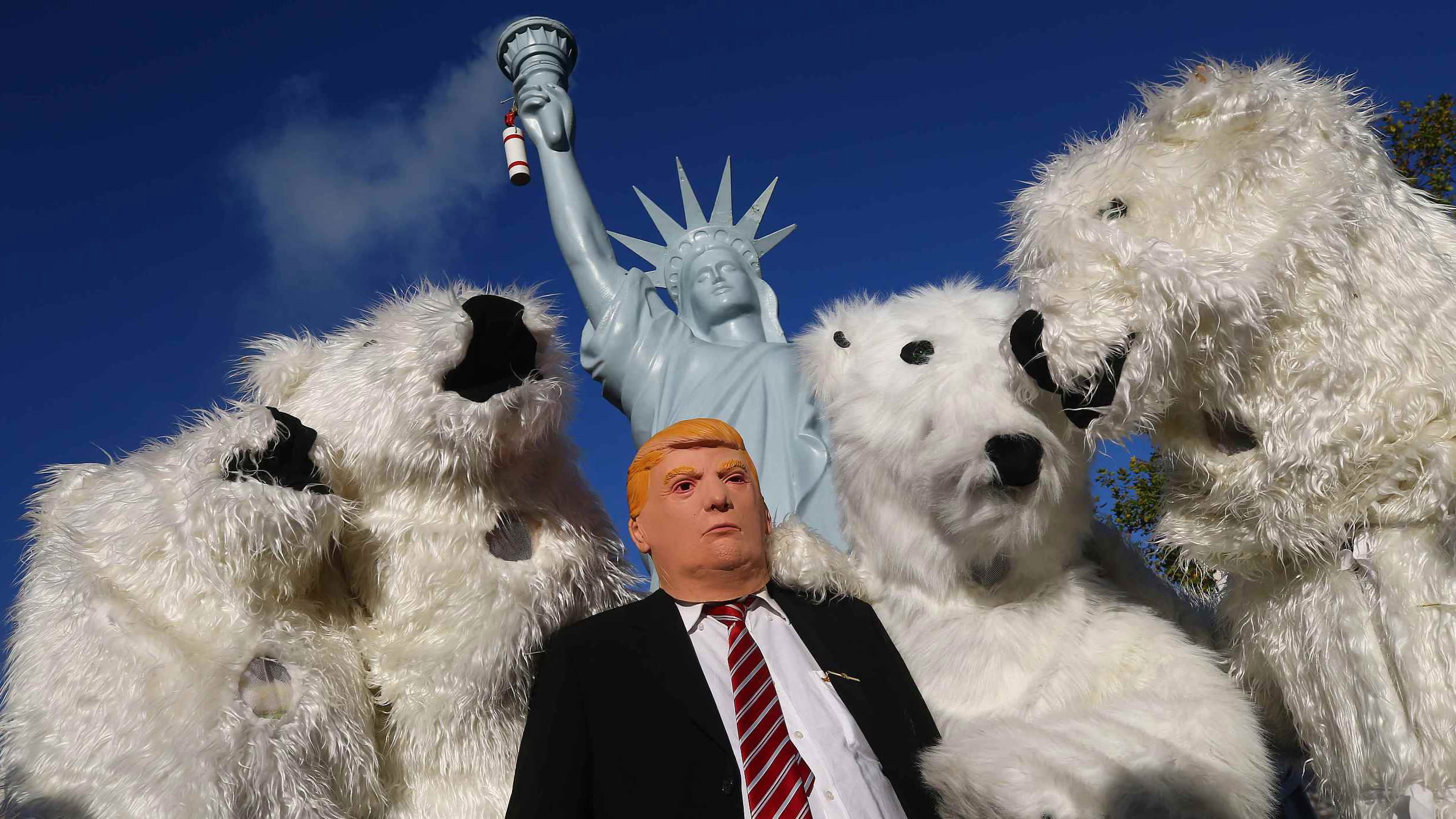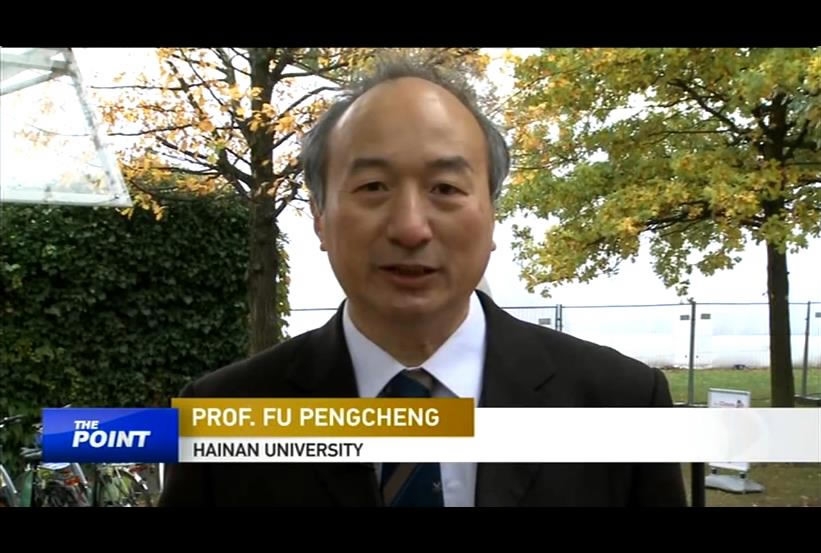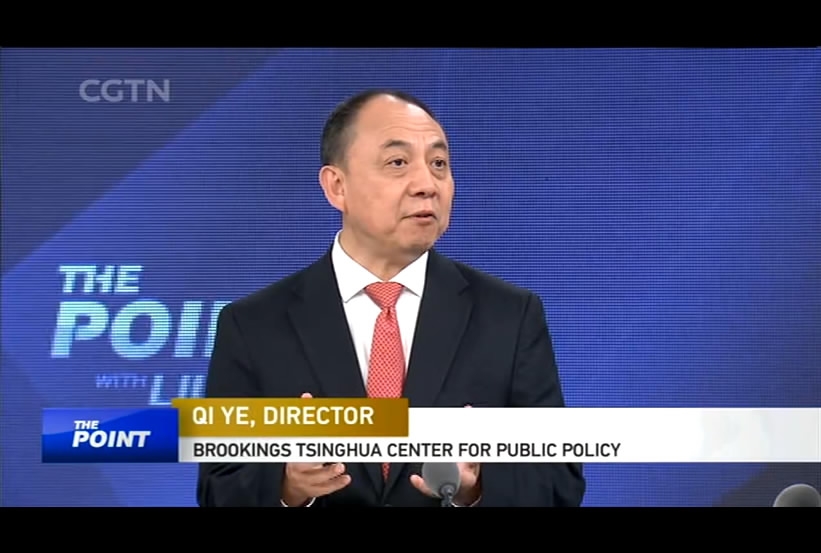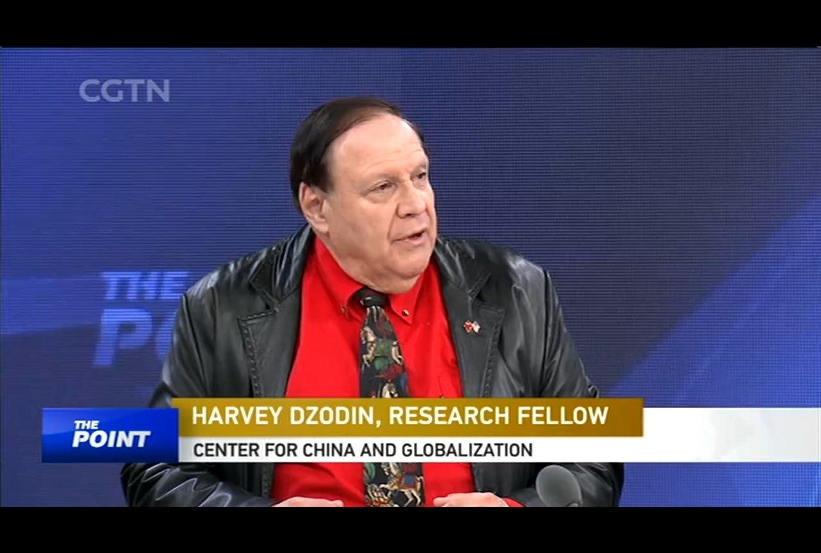
World
18:53, 15-Nov-2017
Can tackling climate change without the US work?
CGTN

By CGTN's The Point
“The purpose of this convention is to encourage continuing dialogue to help people from developing countries and developed countries to negotiate. They should sit together and try to work out a reasonable and feasible plan,” said Pengcheng Fu, a professor at State Key Laboratory of Marine Resource Utilization in South China Sea at Hainan University.
He was talking on the sidelines of the two-week long UN climate change talks, the 23rd Conference of Parties or COP23, which take place from November 6 to 18 in Bonn, Germany.
The talks aim to explore a "technical and operational" implementation road map for the Paris Agreement.

Pengcheng Fu, a professor at State Key Laboratory of Marine Resource Utilization in South China Sea in Hainan University. /CGTN Photo
Pengcheng Fu, a professor at State Key Laboratory of Marine Resource Utilization in South China Sea in Hainan University. /CGTN Photo
“It is quite promising that all the people participating in this convention have shown their momentum to keep going with the Paris Agreement regardless of the US president deciding to withdraw,” he said.
He was referring to President Donald Trump’s announcement in June that he would pull the US out of the historic Paris Agreement.
Qi Ye, Director of the Brookings Tsinghua Center for Public Policy, thought Trump’s decision would make a huge difference to the international contribution to climate change.

Qi Ye, Director of Brookings Tsinghua Center for Public Policy. /CGTN Photo
Qi Ye, Director of Brookings Tsinghua Center for Public Policy. /CGTN Photo
“First is about the climate financing. Even since 1992 UNFCCC [United Nations Framework Convention on Climate Change] was formulated, this has never been resolved. The US takes the biggest share among all developed countries who are expected to contribute to the 100 billion dollars of climate finance. Without the participation of the federal government of the United States, there will be no way,” he said.
He also argued about the US’ role on greenhouse gas reduction.
“The US accounted for around 14 percent of the global greenhouse gas emission; the US is the largest contributor to greenhouse gases from the developed countries. In the absence of the US, it will be really hard to form an alliance for climate change,” he said.
Harvey Dzodin, a research fellow at the Center for China and Globalization, said it was still possible that the US could return to this international agreement.
“It’s a four year clock running from Trump’s announcement. So there is four years to reverse this decision. Many people believe that one way or another the decision will be reversed,” he said.

With the US withdrawal, some countries are now looking to China to fill the financial void but Qi Ye said, “the expectation that China should address this issue is not realistic.”
“When UNFCCC was first formed, it was formed based on the principal called ‘common but differentiated responsibilities’ that means those who are responsible for the majority of the problem, namely climate change, should pay for it,” he added.
As the second-largest economy and a big contributor to greenhouse emissions, China has done a lot to tackle climate change. In 2015, China set up a 3.1 billion US dollar South-South cooperation fund to help other developing countries cope with the effects of climate change and added another 1 billion dollars to the pot in 2016.

Harvey Dzodin, a research fellow at the Center for China and Globalization. /CGTN Photo
Harvey Dzodin, a research fellow at the Center for China and Globalization. /CGTN Photo
This month, Qingdao National Laboratory for Marine Science and Technology (or QNLM), together with the US National Center for Atmospheric Research (NCAR) and Texas A&M University (TAMU), jointly promoted the construction of the International Laboratory for High-Resolution Earth System Prediction (or iHESP) using scientific methods to make accurate and detailed predictions of the Earth's climate on the basis of high-resolution computer and Earth climate system models.
But no country can solve the global climate change issue alone.
“China would be more and more involved in multilateral activities whereas the US is going alone. I think China will win many more friends with its beautiful policy than we will with ours,” Dzodin said.
The Point with Liu Xin is a 30-minute current affairs program on CGTN. It airs weekdays at 9.30 p.m. BJT (1330GMT), with rebroadcasts at 5.30 a.m. (2130GMT) and 10.30 a.m. (0230GMT).
7833km

SITEMAP
Copyright © 2018 CGTN. Beijing ICP prepared NO.16065310-3
Copyright © 2018 CGTN. Beijing ICP prepared NO.16065310-3